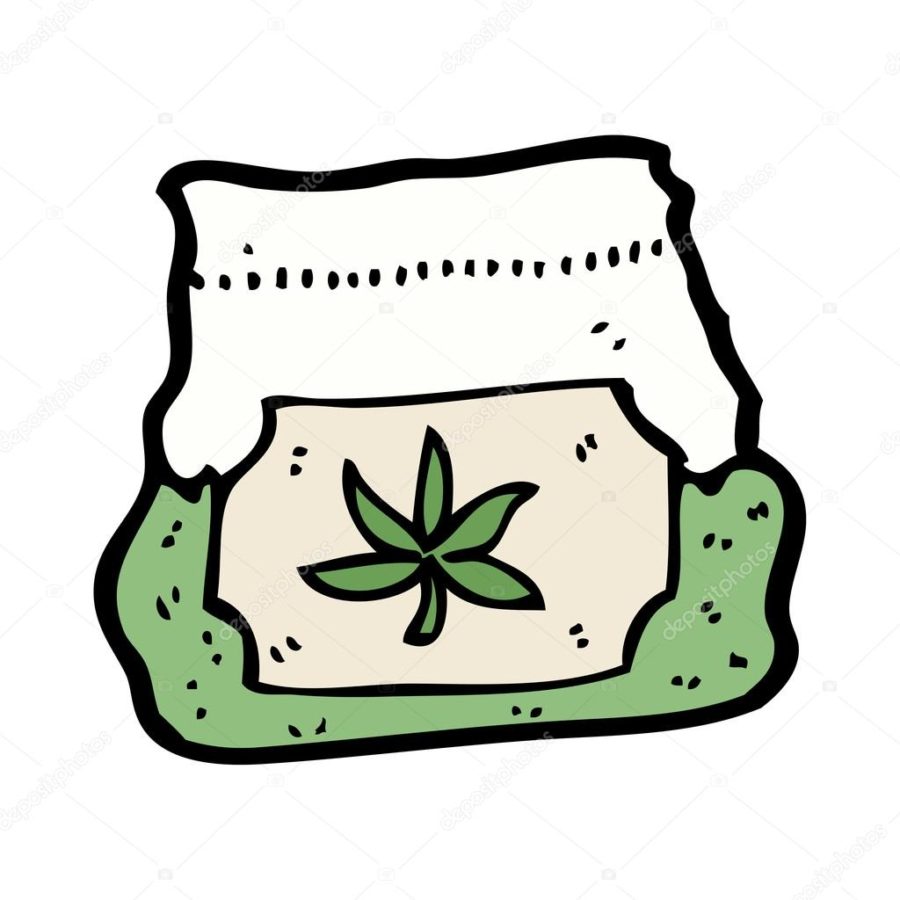Marijuana is not a schedule one drug.
Marijuana isn’t just used recreationally. It can be used as an alternative to addictive opiates to treat pain, lessening the heartbreaking opioid epidemic, in which 91 Americans pass away every day.
January 10, 2018
Marijuana is undoubtedly, inarguably illegal.
There’s no wiggle room in that statement because under federal law it’s considered a schedule I drug, the same classification as heroin and ecstasy. This means that marijuana is also considered more dangerous than historically deadly drugs such as cocaine, methamphetamine and fentanyl, which are all schedule II drugs.
However, the drug is recklessly misclassified.
According to the National Institute on Alcohol Abuse and Alcoholism, an estimated 88,000 people a year die from alcohol use. To contrast, there are zero recorded deaths in history due to marijuana usage, a shocking number for an illegal substance.
Marijuana isn’t just used recreationally either. It can be used as an alternative to addictive opiates to treat pain — lessening the heartbreaking opioid epidemic — in which 91 Americans pass away every day. Marijuana pills can be used to induce appetite in those with eating disorders or going through chemotherapy. Pills like this use the second most common component in marijuana, cannabidiol, which can treat anything from anxiety to epilepsy.
So why in a country as great as the United States of America is this drug illegal, held off from the masses? The answer is largely for profit.
In 1971, president Richard Nixon began the modern “war on drugs,” pledging to rid American communities of “enemy number one,” drug addiction. It was a seemingly noble cause, but the motive was twisted from the beginning.
Since the beginning of the war on drugs incarceration rates have skyrocketed nearly 500 percent. Of the 1.4 million Americans currently serving a prison sentence, 31 percent of those are for drug related charges. Since 1985 state and federal expenditure on incarceration has risen 60%, from $6.7 billion to nearly $57 billion dollars.
Not only are there a large amount of people in prison for drug related charges, there’s also an unreasonable amount of people in prison in general. The United States has three percent of the world’s population, yet incarcerates nearly 25 percent of the world’s prison population. This leads to mass overcrowding in prisons around the country.
Being in prison is not just being a statistic. For years of a person’s life, they are locked in a cement building, their actions, speech and existence are restricted and monitored. Often times violators are often sentenced to years in prison for possessing small amounts of the drug for personal use with no intent to distribute.
Reducing the harshness of laws on marijuana — or making it legal for recreational use and possession — would free up millions of dollars in resources for courts and police departments across the nation. It would also greatly reduce the amount of people put into already overcrowded prisons for small nonviolent drug crimes.
States that have already legalized marijuana for recreational use have seen immense benefits, both financially and socially.
Colorado received $140 million in 2016 through taxing the sale of marijuana.
It also saw the rate of youth usage decrease for two years in a row according to a new national survey. This is because marijuana is treated and sold in the same way as alcohol.
It’s estimated by the Tax Foundation that the United States would receive upwards of $28 billion if the entire country were to legalize recreational sale of marijuana.
This money could be spent on government projects, education and road repairs. But instead, this money flows into the underworld.
Marijuana is the most commonly used drug in the world and current sale of the product runs through hidden black markets, popping up crime, gangs and violence.
If sale of the drug was run through government sponsored organizations, these rings of organized crimes would see massive hits to their income, destabilizing and weakening gangs.
Regardless of legality of marijuana, society pays for the costs of use. However, American society potentially stands to see these costs lessen, through taxes, through regulated sale and through higher standards of marijuana products.
Plans are in the works in Michigan for that to become a reality. Groups like the Coalition to Regulate Marijuana like Alcohol and MI Legalize have collected enough signatures for a proposal to legalize marijuana in the state. The proposition, slated to be on the 2018 midterm ballot would bring in up to $100 million to the state of Michigan and allow for up to 10 ounces of marijuana possession in the home.
America is a country built on the basis of freedom. Freedom of religion, of sexuality, of belief and of choice. This country has the choice to continue down the path of imprisonment, punishment and harshness. Or it has the opportunity to create a new industry, economy and income. The decision is in the hands of the people.


